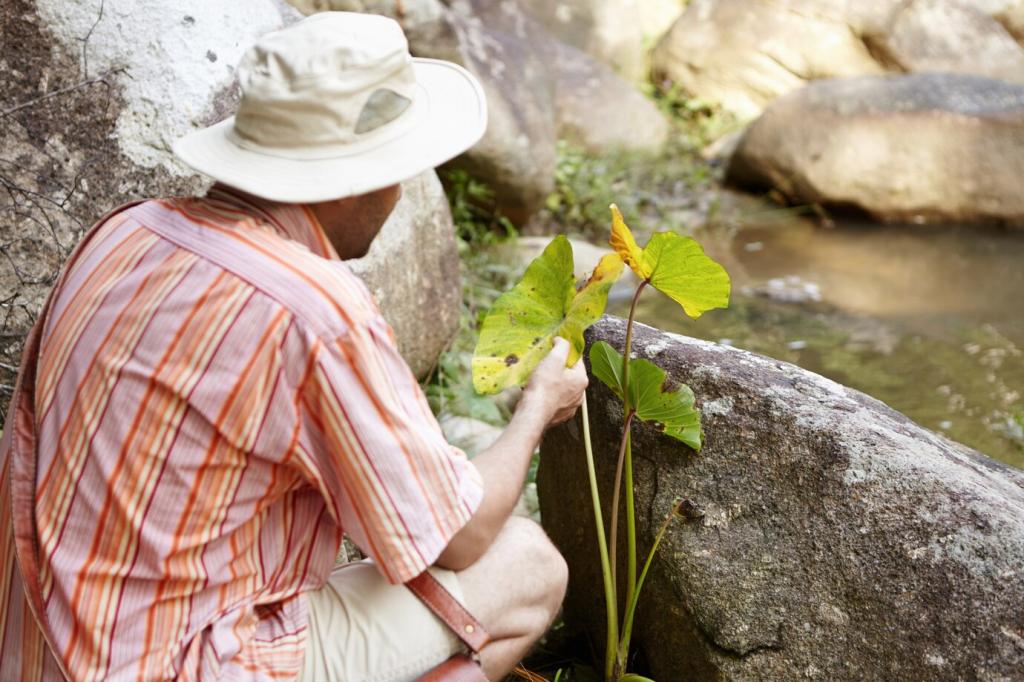Farm-to-Mat Nourishment
Seasonal, plant-forward menus reduce emissions and taste incredible. Imagine pomelo salad after practice, lentil stew with garden herbs at dusk, and sun-warmed figs for dessert. Chefs partner with nearby farms, so every bite echoes the landscape. What dishes would you love us to explore next?
Farm-to-Mat Nourishment
Ayurveda thrives on context. Retreat cooks balance doshas using local grains, cooling leaves, and digestive spices, adjusting for climate and season. Simple kitchari, herb teas, and mindful chewing ground the nervous system. Subscribe for a gentle, weeklong plan that honors both tradition and place.






